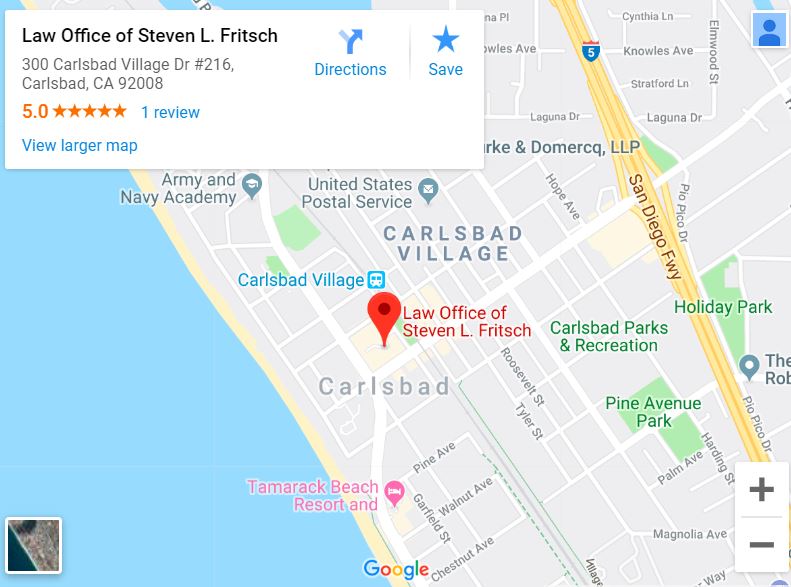I have given many consultations where the person believes he or she is entitled to a nullity or annulment. They have a misconception that courts freely and often hand out nullity judgments. This could not be further from the truth. A nullity (or annulment) is the most uncommon and one of the most difficult judgments to obtain in family law. A judgment for nullity essentially means that the marital relationship never existed. Courts do not want to grant these judgments and they are difficult to get. The issue is generally bifurcated or in other words, there is a separate trial on the issue. A nullity can be brought by the spouse or a guardian which is generally the case if the spouse is incapacitated or a minor.
An invalid marriage is either void or voidable. A void marriage (Family Code s. 2200-2201) is invalid from its inception which means it never legally existed from the beginning. Examples of a void marriage are incentuous and bigamous marriages although there are exceptions in a bigamouse marriage if the spouse has been absent and not known to be living for five successive years immediately preceding the subsequent marriage or the spouse is believed to be dead.
A voidable marriage is one that is valid until a court deems it invalid. This is different from a void marriage because a voidable marriage may become unvoidable due to passage of time and a continuation in the marriage whereas a void marriage is invalid from the beginning. There is a statute of limitations issue for voidable marriages. The following are examples of voidable marriages. 1) Force. Force must be of sufficient magnitude to overcome a party’s free will. Will not be voided if the forced party freely cohabitated with the other spouse as husband or wife. FC2210(e); 2) Physical Incapacity. Voidable if either party unable to engage in sex and this incapacity continues and appears incurable. FC2210(f); Unsound Mind. Voidable unless the marriage was contracted during a period of a lucid interval and freely cohabited with the other as husband and wife. FC2210(c). Underage-Minority. Voidable unless after attaining the age of consent, the party for any time freely cohabited with other as husband and wife. FC 2210(a). Fraud. Voidable unless the spouse freely cohabited with other the spouse with full knowledge of the facts constituting the fraud. FC2210(d).
The fraud must go to the very essence of the marital relationship. The following are examples of fraud that may void a marriage: concealment of existing pregnancy, concealment of sterility, concealing of a criminal record so long as the offense is serious, entering marriage solely as means to obtain citizenship with no intention to remain in the marriage, will not have children despite a promise to have children, and not to give up relationship with other person. The following are examples of not fraud and will not void the marriage: concealment of incontinence, ill temper, idleness, extravagance, coldness, bad in bed, lying about wealth, deceit about one’s chasity or moral character.
If a marriage is nullified than it never existed and therefore there is no division of property, no spousal support or attorney fees. Like most other areas of law there is an exception. If a spouse is deemed a “putative spouse” which means the he or she had a good faith belief the marriage was valid, the spouse or spouses may be entitled property, spousal support (alimony) and attorney fees and costs. FC2251.
As you can see, a nullity is not an easy judgment to obtain. The laws are constructed to make it difficult to obtain one. If you believe that the circumstances in your marriage or domestic partnership invalidate your marriage, you should see family law attorney to analyze the facts and determine if a nullity is possible.
Disclaimer: The information posted above is for informational and educational use only and is in no way legal advice or intended to be legal advice. If you have legal questions, you should seek the advice of an attorney.
